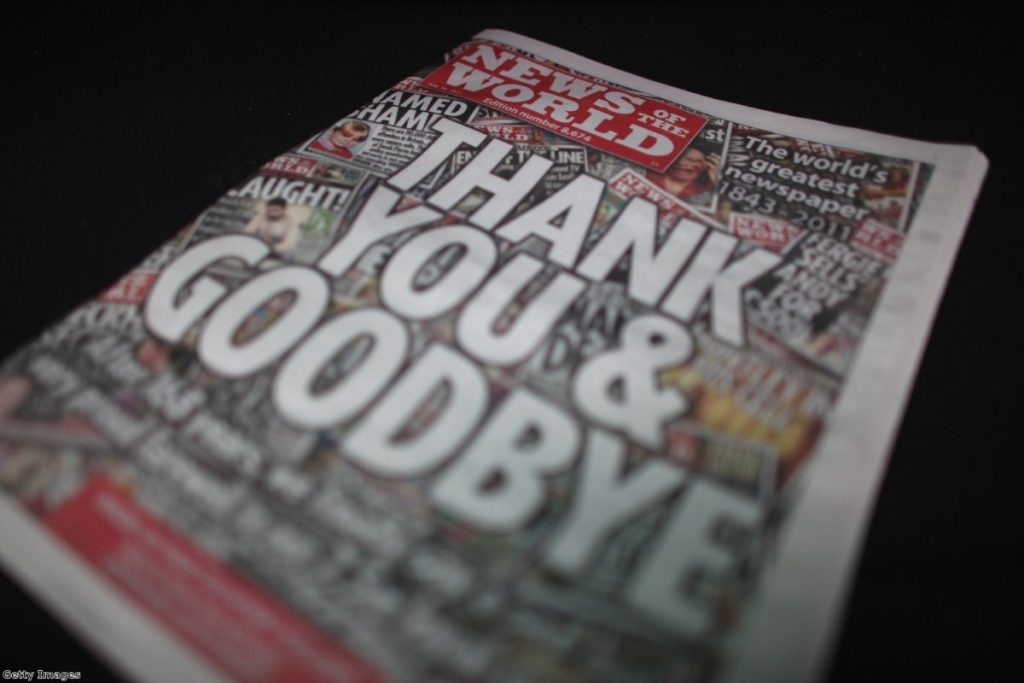The British press’ last hurrah
The press lost a last ditch-effort to stop itself falling under statutory control today, as a shadowy meeting of the privy council imposed new rules on the industry.
Newspapers called for the high court to halt the introduction of a new regime before it could even begin, with a legal challenge claiming their alternate system was ignored by the privy council.
They also claimed the council failed to consult the industry properly on the proposed charter.
The request for an injunction was rejected but publishers have a small chance of securing their objective in the court of appeal.


"We are clear the process for considering the industry royal charter was robust and fair and the courts have agreed. We can now get on with implementing the cross-party charter," a Department for Culture, Media and Sport spokesperson said.
"A royal charter will protect freedom of the press whilst offering real redress when mistakes are made. Importantly, it is the best way of resisting full statutory regulation that others have tried to impose."
Labour shadow media secretary Harriet Harman said: "The legal action taken by some newspapers has failed and cross party royal charter will go to the privy council this afternoon.
"Despite strong feelings on all sides, everyone agrees that the current system failed and must be replaced – the press have nothing to fear from a proper complaints system."
Members of the council will advise the Queen to grant a royal charter enforcing the new regulatory regime, although publishers cannot be compelled to sign up
The privy council meeting will be chaired by Nick Clegg, but Downing Street is refusing to disclose the name of the ministers who will attend the meeting.
During his monthly press conference this afternoon, Clegg said there was a "huge amount of consensus" over regulation and that "it's not contentious" among the three main parties.
But he attacked Tory chairman Grant Shapps for suggesting the BBC could lose its right to the licence fee unless it watered down its criticism of coalition policy.
"I don't think that it is very healthy at all when people start having a go at the impartiality of the BBC," he said.
Asked if he agreed with Shapps by a journalist, Clegg interrupted him and said: "Generally not."
This afternoon the Department of CUlture Media and Sport published the third and final version of the royal charter.
The main difference between the press and the government royal charter is that the former has a much stronger triple-lock mechanism to prevent any future rewriting of it, whereas the state version requires a two thirds vote from both Houses of Parliament.
There are also disagreements on the make-up of the oversight board and plans for a whistleblowers hotline.
The climax of the battle comes amid heightened tensions over press freedom.
David Cameron warned this week he could be forced to step in and try to stop the Guardian publishing more stories about spy hacking, which have revealed a much more extensive surveillance system than previously imagined.
Meanwhile, police by the Old Bailey warned a news vendor to remove copies of Private Eye, which featured a joke about Rebekah Brooks, who is standing trial on allegations of phone-hacking sat the court.
The attorney general said the joke did not amount to contempt of court, but the magazine was singled out for criticism by the judge presiding over the trial.
Article 19, an international human rights organisation, has called for the privy council meeting to be postponed instead of pressing ahead without industry backing.
The Daily Mail, the Telegraph, the Mirror and News UK, publisher of the Sun and the Times, are opposing the government charter. The Financial Times, Independent and Guardian are backing neither plan.
Meanwhile, the case for the prosecution began today at the phone-hacking trial, which is expected to last for six months.

